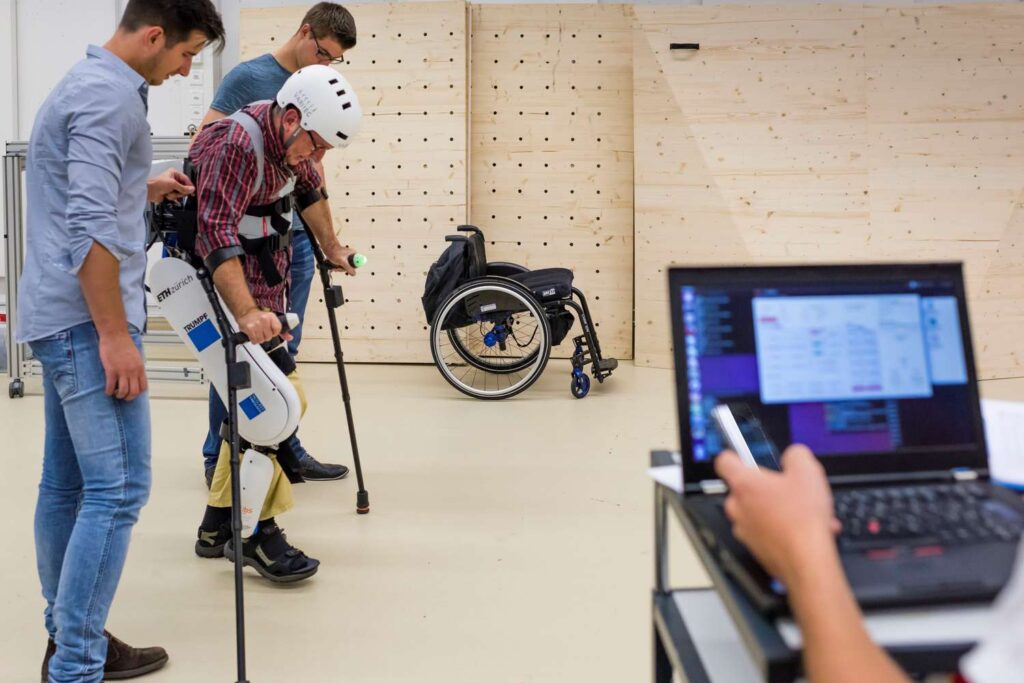Table of Contents
Assistive technology professional means a special helper who knows how to find and teach people the best tools to make life easier. These professionals work with people who have disabilities and help them use devices like wheelchairs, hearing aids, or special computers. The goal of an assistive technology professional is to help people do everyday things better and feel more independent.
Being an assistive technology professional takes special training and skills. They learn how to understand what a person needs and then pick the right tools that fit those needs. After choosing the right device, they also show people how to use it well. This way, everyone can live more comfortably and join in school, work, or fun activities.
Who is an Assistive Technology Professional?
An assistive technology professional is a person who helps people with disabilities find tools that make their life easier. These tools, called assistive technology, can be things like special wheelchairs, hearing aids, or computer programs. The job of an assistive technology professional is to understand what each person needs and then suggest the best devices for them. They also teach how to use these tools well so people can do things they might find hard before.
People who become an assistive technology professional usually have special training. They learn about different devices and how to match them to the person’s needs. This work is very important because it helps people live more independently. For example, a child who cannot speak clearly might get a communication device to help them talk better. The assistive technology professional helps pick that device and trains the child and their family on how to use it.
This job is not only about finding devices but also about making sure the technology fits the person’s daily life. Sometimes, the professional might work with doctors, teachers, or therapists to give the best help possible. They also check if the devices are working well and fix problems when needed. Without these professionals, many people would struggle to do things like going to school, working, or even just moving around.
In short, an assistive technology professional is a helper, teacher, and problem solver who makes life better for people with disabilities. Their work allows people to do more by themselves and feel more confident every day.
Why Do We Need an Assistive Technology Professional?

We need an assistive technology professional because not all devices work the same for everyone. Each person’s needs are different, so it takes a special skill to know what device will help best. These professionals make sure that the tools match the person’s abilities and daily activities. Without their help, people might get devices that are hard to use or don’t fit their needs well.
When someone has a disability, they might find it hard to do simple things like walking, hearing, or talking. An assistive technology professional helps by finding devices that make these tasks easier. For example, someone who cannot hear well might get a hearing aid that makes sounds louder. The professional will check that the device fits correctly and works well in places like home, school, or work.
Assistive technology professionals also teach people how to use their devices correctly. It’s not enough to just give someone a tool — they need to understand how it works to get the most benefit. These professionals often spend time training users and their families. This training helps people feel comfortable and confident with their new technology.
Another reason we need these professionals is that technology keeps changing. New devices are created every year that can help people in different ways. Assistive technology professionals stay up-to-date with the latest tools and learn how to use them. This way, they can offer the best options and improve the lives of many people with disabilities.
How Assistive Technology Professionals Help People with Disabilities
Assistive technology professionals play a very important role in helping people with disabilities live better lives. They start by talking with the person and learning about their daily challenges. This helps the professional understand what kind of help or device will be most useful. They may look at how the person moves, communicates, or learns to find the right assistive technology.
Once they know what is needed, these professionals find devices that fit the person’s lifestyle. For example, a person who has trouble walking might get a wheelchair that suits their height and strength. Or someone who cannot see well might get a special magnifier to read books. The assistive technology professional carefully picks the device to make sure it works well and is easy to use.
But their job does not stop at choosing a device. They also teach the person how to use it. This can take some time because every device is different. They might show how to turn it on, control it, or care for it. This training is important because it helps people become confident and independent. When people know how to use their technology, they can do more things by themselves.
Assistive technology professionals also work with families, teachers, and doctors. They help everyone understand how to support the person using the technology. Sometimes, they fix or adjust the devices when needed. Their goal is to make sure the device keeps helping the person every day, so life is easier and more fun.
The Training and Skills of an Assistive Technology Professional

To become an assistive technology professional, a person needs special training and skills. Most of them start with a degree in fields like occupational therapy, engineering, or speech therapy. Then, they learn more about assistive technology through courses and hands-on practice. This extra training helps them understand all the devices and how to fit them to each person’s needs.
One important skill for an assistive technology professional is listening carefully. They must understand the person’s challenges and goals. This helps them find the right technology that will work well in real life. They also need to be patient and good at teaching, so they can show people how to use the devices step by step.
Another key skill is problem-solving. Sometimes, a device might not work perfectly right away. The professional must figure out how to fix it or find a better option. They often work with teams, like doctors and teachers, to get ideas and help the person in the best way possible.
Many assistive technology professionals also get a special certificate called the ATP (Assistive Technology Professional). This shows they have passed exams and met experience requirements. It proves they know a lot about assistive technology and can help people well. With this training and these skills, assistive technology professionals make a big difference in many lives.
The Role of an Assistive Technology Professional in Everyday Life
An assistive technology professional helps people use devices that make daily activities easier. These professionals look at a person’s needs and suggest tools to help with things like moving, talking, or learning. Their work is important because it helps people be more independent and do things they enjoy.
When someone gets a new device, the assistive technology professional teaches them how to use it safely and well. They may show how to operate a wheelchair, use a speech device, or work with special computer programs. This training helps people feel confident and able to do more by themselves.
Sometimes, the professional visits homes, schools, or workplaces to make sure the devices fit well in different places. They also fix or adjust devices when problems happen. Their goal is to make sure the assistive technology helps every day, making life easier and happier for the person who uses it.
Why This Role is Important
- Helps people stay independent
- Supports learning and work activities
- Makes homes and schools more accessible
- Works closely with families and teachers
Certification and Career Path for an Assistive Technology Professional

To become a trusted assistive technology professional, many people earn a special certification called ATP. This certification shows that a person knows a lot about assistive technology and can help people well. Getting the ATP certificate usually means passing a test and having some work experience.
People who want this career often start in fields like therapy, engineering, or education. After that, they take extra classes and learn about different assistive devices. The certification helps employers trust that they have the right skills to serve people with disabilities.
Having this certification can open many job opportunities. Assistive technology professionals can work in hospitals, schools, or companies that make or sell devices. They can also work with government programs that help people get the tools they need.
Steps to Become an Assistive Technology Professional
- Earn a degree in a related field (therapy, engineering, education)
- Gain work experience with people who have disabilities
- Complete specialized training in assistive technology
- Pass the ATP certification exam
- Keep learning about new devices and technology
Conclusion
Being an assistive technology professional is a special job. These helpers find and teach people how to use tools that make life easier. They help people with disabilities do things by themselves, like moving, talking, and learning. This makes life more fun and less hard for many people.
If you like helping others and learning about cool technology, this job can be a great choice. Assistive technology professionals make a big difference every day. They bring smiles and independence to people who need a little extra help. It’s a job full of kindness and smart ideas!
FAQs
Q: What is an assistive technology professional?
A: An assistive technology professional helps people with disabilities find and use devices that make daily life easier.
Q: What kind of devices do they work with?
A: They work with wheelchairs, hearing aids, communication tools, and many other helpful devices.
Q: How do you become an assistive technology professional?
A: You usually start with a related degree and then get special training and certification like the ATP.
Q: Where do assistive technology professionals work?
A: They work in hospitals, schools, rehab centers, and companies that provide assistive devices.
Q: Why is their job important?
A: They help people be more independent and enjoy life by using the right technology.
Q: Can assistive technology professionals fix devices?
A: Yes, they often repair and adjust devices to make sure they work well for each person.


